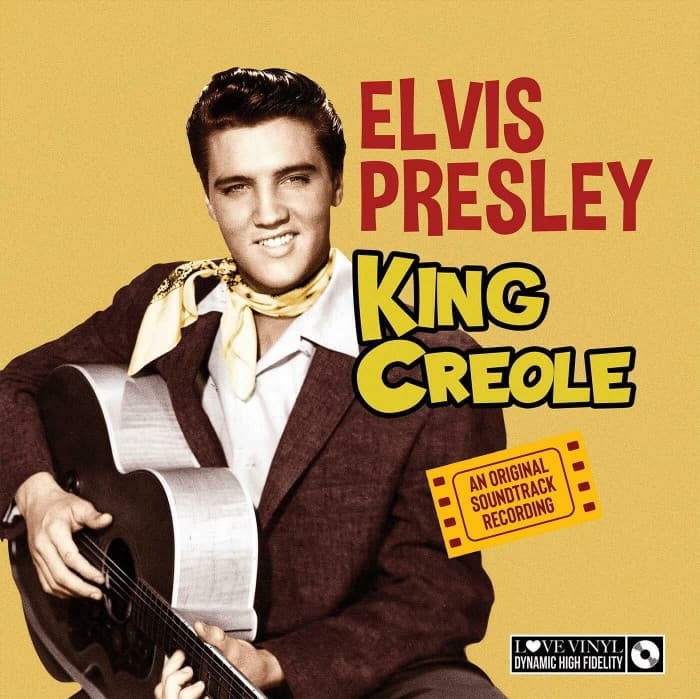
King Creole: The Uncrowned King of Rock and Roll
“King Creole” is more than just a song; it’s a vibrant snapshot of a pivotal moment in music history, a time when a young man from Tupelo, Mississippi, was about to be crowned the undisputed king of a new sound. When Elvis Presley first belted out this tune, it was the title track to his fourth motion picture, a film that many, including Elvis himself, considered his best. Released in 1958, the song and the album of the same name served as a potent testament to Presley’s versatility, a blend of raw rock and roll energy with the cinematic grandeur of Hollywood.
At a time when rock and roll was still finding its footing, and some of its most dynamic stars were either sidelined or still on the rise, Elvis was a force of nature. In 1958, with his star power already undeniable, the album “King Creole” peaked at number two on the Billboard Pop Albums chart. The title track, however, was never released as a single in the United States, a testament to the album’s strength as a complete artistic statement. Yet, its presence was felt everywhere, an anthem echoing the film’s gritty, New Orleans-set narrative. It’s a song that captures the swagger and vulnerability of its protagonist, Danny Fisher, a young man torn between a life of crime and a career as a singer. This duality mirrored, in some ways, Elvis’s own life, the tension between his public persona and his private aspirations.
The story behind “King Creole” is as compelling as the music itself. The film, originally titled “A Stone for Danny Fisher,” was adapted from a Harold Robbins novel. The setting was moved from New York to the sultry, jazz-infused streets of New Orleans, a decision that profoundly influenced the song’s sound. The movie’s director, Michael Curtiz—the same man who directed “Casablanca”—pushed Elvis to give a more serious performance, encouraging a depth that was sometimes lost in his more lightweight film roles. This was not a fluffy, beach-bound musical. It was a gritty drama, and the music had to match. Elvis rose to the occasion, delivering a performance that showcased his burgeoning acting talent and his incredible vocal range. He wasn’t just singing; he was embodying the character, pouring the angst and ambition of Danny Fisher into every note.
The meaning of the song is deeply intertwined with the film’s narrative. It’s a song of identity, of a young man finding his voice and his place in a world that is trying to pull him in different directions. The lyrics speak of a “King Creole,” a figure of both adoration and danger, someone who “plays a cool guitar” but is also “hot-blooded.” This duality is the song’s core. It’s about the allure of the nightlife, the power of music, and the constant struggle to be true to oneself. For older listeners, this song evokes a time when rock and roll was a rebel yell, not yet a corporate commodity. It reminds us of an era when a new genre was carving out its space, a sound that was thrilling, a little dangerous, and utterly captivating.
Hearing the opening chords of “King Creole” today is like stepping into a time machine. It’s the sound of a bygone era, of a time when the world was a little less connected, a little more mysterious, and a lot more raw. The raw energy of Elvis’s voice, the powerful brass section, and the driving beat all come together to create a sound that is both timeless and deeply rooted in its time. It’s a song that encapsulates the essence of Elvis Presley at his artistic peak—confident, charismatic, and entirely in command of his craft. For those of us who remember those days, it’s not just music; it’s a memory. It’s the feeling of a hot summer night, of a movie theater filled with the buzz of excitement, and of a voice that changed everything. “King Creole” isn’t just a song about a character; it’s a song about the man who brought him to life, a man who, for a brief and brilliant time, was the absolute and undisputed king of our musical world.